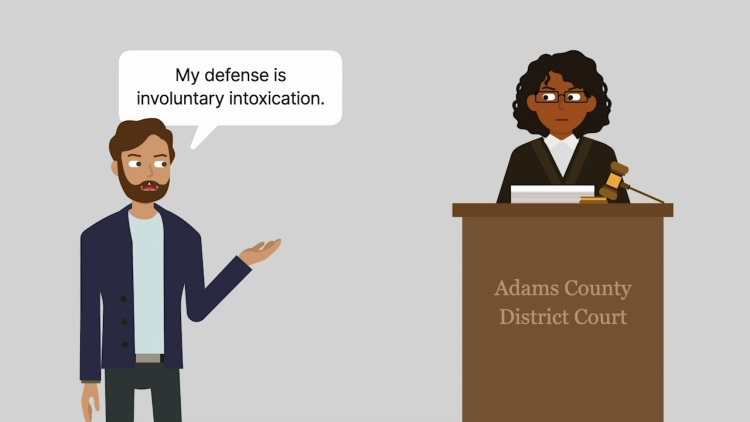People v. Garcia
Colorado Supreme Court
113 P.3d 775 (2005)
- Written by Samantha Arena, JD
Facts
On July 11, 1999, Steve Garcia (defendant), a diagnosed diabetic, injected himself with a dose of insulin. Garcia did not eat anything after administering the insulin. Thereafter, while running errands, Johnie, Garcia’s wife, noticed that Garcia was acting strangely. Without warning, Garcia hit Johnie in the head with a hammer while they were exiting a parking lot in their van. Johnie escaped the van and began to run, but Garcia pursued her and ran her over, severely injuring her. The State of Colorado (plaintiff) charged Garcia with attempted first-degree murder, among other crimes. Prior to trial, Garcia gave notice that he would assert the affirmative defense of involuntary intoxication, contending that he was not responsible for the crime because he suffered from insulin-induced hypoglycemia at the time of the incident. Garcia proposed to call a doctor to testify that the insulin dosage, in conjunction with a lack of food, caused a hypoglycemic condition that affected Garcia’s ability to think rationally and that consequently prevented his ability to form the requisite mens rea for first-degree attempted murder. The trial court concluded that insulin-induced hypoglycemia can never constitute the affirmative defense of involuntary intoxication. While the trial court instructed the jury on the defense of insanity, the court did not provide instructions on involuntary intoxication. The jury convicted Garcia. Garcia appealed. The court of appeals held that the trial court erred in prohibiting Garcia from producing evidence to support the defense. The state petitioned the Colorado Supreme Court for certiorari. The court granted the petition.
Rule of Law
Issue
Holding and Reasoning (Bender, J.)
What to do next…
Here's why 907,000 law students have relied on our case briefs:
- Written by law professors and practitioners, not other law students. 47,100 briefs, keyed to 996 casebooks. Top-notch customer support.
- The right amount of information, includes the facts, issues, rule of law, holding and reasoning, and any concurrences and dissents.
- Access in your classes, works on your mobile and tablet. Massive library of related video lessons and high quality multiple-choice questions.
- Easy to use, uniform format for every case brief. Written in plain English, not in legalese. Our briefs summarize and simplify; they don’t just repeat the court’s language.





